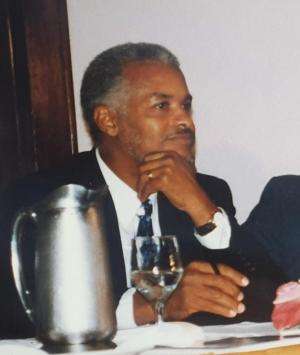Social work mourns loss of pioneering anti-racism leader

Published by Professional Social Work magazine, 13 June, 2022
Social work has lot of one of its giants – the social reformer, humanist, author, academic and practitioner John Small, who has passed away aged 74.
John’s life was taken by motor neuron disease on 29 May 2022, a condition he had bravely fought against since 2016, relying on his inner strength to overcome its adversities.
John never had the opportunity to read for a PhD, but he deserves one. Today, he could apply for one based on his publications which have been amongst the most influential in the profession.
Those of us who knew John will miss the warmth of a wonderful person and friend who strove to make life better for those who were disadvantaged by structural inequalities and ensure that they lived to fulfil their potential and make their contributions to society.
John shone as an amazing role model to all those who came within his ambit. As a pioneer, John was among the first of his generation to break many barriers to his own fulfilment in the UK. But break through, he did.
He was among the first people with an African Caribbean background to hold the post of deputy director of social services and acting director of social services in Hackney in the 1980s. Before that he was a founding member of the Association of Black Social Workers and Allied Professionals.
He demanded that Black children in the care system were treated with respect, dignity, and the right to know and hold their cultural heritage.
Much of the legislation in the UK owes much of its anti-racist awareness to his endeavours, and his prolific writings on the topic have shaped contemporary practice.
Among John's achievements, was the creation of the New Black Families Unit to recruit Black foster and adoptive parents to be matched with Black children. The unit was influential in showing that Black children placed in white families needed strong links with Black communities.
None of this was achieved easily. John faced much hostility as a pioneer, but he persisted to fight for social justice for those who could not be heard.
As a lecturer at the University of the West Indies, Mona Campus in Jamaica, John was also a change agent, as he had been all his life. Besides being fully engaged in supporting students and his community in Jamaica, John continued his work as a reformer as President of the International Returning Residents Association by addressing the needs of Jamaicans coming back to their roots.
Being John, he also undertook research into such areas and then wrote about them, thus contributing to re-theorising transnational families.
John was also a family man. His departure has left Kathleen Betton-Small and their three adult children, John Jnr, Jerome and Zahara, bereft. They may derive some comfort from knowing how many lives John has touched during his life, and the admiration that many feel for him.
His work and contribution to a profession that continues to struggle to meet its aspirations for celebrating diversity, equality and inclusivity, will carry on being used and will influence new cohorts of students and practitioners.
We will all miss the leadership and constantly evolving vision of a better future that John offered all of us to his dying day.
With thanks to John's family for supplying the photo
